IFEEDER Fodder
-
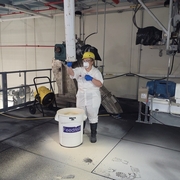
- April 2, 2024
- Preparing for the Next Animal Disease Outbreak – Feed Mill Hygiene and Decontamination
-
Since the outbreak of the porcine epidemic diarrhea virus (PEDV) in 2013, the feed and livestock industries have worked to gain a better understanding of pathogen transmission through feed and the supply chain. Multiple studies have documented the distribution of viral pathogens in mills after contamination, the stability of viruses in feed and ingredient matrices, and virus reduction using chemical mitigants or extended holding times.
- By Guest
-
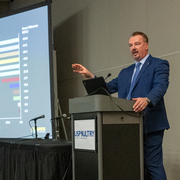
- March 11, 2024
- Why Dietary Change Is Not the Path to Reducing Animal Agriculture's Environmental Footprint
-
The International Production and Processing Expo (IPPE) is an important opportunity for meetings and networking and also where great opportunities for learning occur. I had the opportunity to participate in the Animal Agriculture Sustainability Summit, hosted by the American Feed Industry Association, Meat Institute, and U.S. Poultry and Egg Association.
- By Lara Moody
-
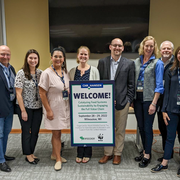
- March 11, 2024
- Why Supporting IFEEDER Is Imperative for Companies in Animal Agriculture
-
In the tapestry of sustainability and innovation, there are stories that serve not just as individual successes but as rallying cries for entire industries. One such unfolding narrative centers around the urgent need for sustainable agriculture—a call that reverberates from the fields to the boardrooms, from rural communities to urban centers. While some players, like Novonesis, have set important precedents, the full story is yet to be written.
- By Guest
-
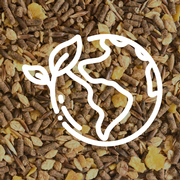
- July 6, 2023
- Innovation and Feed: How Animal Ag Can Reduct Its Environmental Footprint
-
As the agrifood sector seeks opportunities to use feed to reduce the environmental footprint of animal production, the discussion focused on the importance of innovation in its many forms — linking solutions from feedstuff production to the rations consumed by the animals.
- By AFIA Editor
-

- June 28, 2023
- Feed Innovation Can Lower Environmental Footprints
-
Feedstuff production on the farm may be a leading source of the environmental footprint for livestock, poultry, horses and pets, but it doesn’t mean it will be the best solution for reducing it. Regenerative agriculture, climate-smart practices and efforts to improve soil health are agricultural practices that receive a lot of attention by stakeholders for reducing t animal feed’s footprint, but I would argue that we must give equal attention to some of the animal food industry innovations in the pipeline that will offer solutions as well.
- By Lara Moody
-
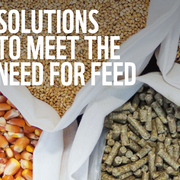
- April 27, 2023
- Collaboration is Key to Meeting the Need for Feed
-
Over the past year, I’ve been lucky to collaborate with many American Feed Industry Association and Institute for Feed Education and Research staff and members, forging the first-ever partnership between our organizations. The goal was to elevate a vision that feed and animal nutrition can be a critical lever in providing sustainable solutions to food systems.
- By Guest
-
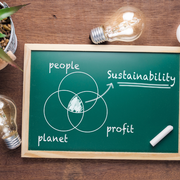
- April 3, 2023
- Sustainability as a Value Creator: Top 4 Insights from Those Who Do
-
Are you a “value creator?” If you haven’t heard this term – keep reading! McKinsey & Company recently conducted a global survey on how companies capture the value of sustainability. Below are four things I learned about the benefits of a company having a sustainability program within their organization from the “Creating Value with Sustainability: Survey.”
- By Guest
-
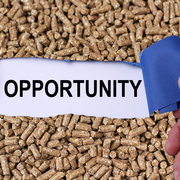
- February 16, 2023
- Sustainability: An Imposed Requirement or A Market Opportunity?
-
During the recent International Production & Processing Expo in Atlanta, Ga., it seemed to me that sustainability was on the minds of many attendees and exhibitors. It could be that I was especially tuned into the topic with the launch of the Institute for Feed Education and Research’s Animal Food Industry Sustainability Toolkit during the show, but let me give you some context.
- By Lara Moody
-
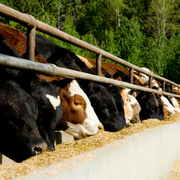
- February 16, 2023
- Communicating Feed's Impact Via the Protein PACT
-
The Protein PACT for the People, Animals & Climate of Tomorrow unites partners including the Institute for Feed Education and Research (IFEEDER) across the animal agriculture supply chain in the largest-ever effort to strengthen animal protein’s contributions to the people, animals and climate of tomorrow. Following the Protein PACT’s launch in July 2021, the North American Meat Institute (Meat Institute) and our partners have been hard at work to set measurable baselines, verify progress toward ambitious achievements and communicate transparently about how nutrient-dense animal-sourced foods contribute to sustainable food security solutions.
- By Guest
-
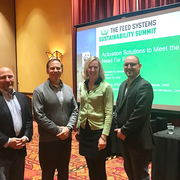
- December 8, 2022
- Calling All Partners, The Time to Engage Is Now
-
The Institute for Feed Education and Research is making progress on several of its sustainability initiatives. We are wrapping up phase one of the Sustainability Road Map project and will be releasing a sustainability toolkit for feed industry members in January during the International Production and Processing Expo. Another project, the Feed Systems Sustainability Summit, held in September, was a great success and the takeaways are informing actions for the industry and its stakeholders. During the November Sustainable Agriculture Summit (SAS), over 800 representatives from the food value chain gathered, networked and made plans to advance sustainability efforts up and down the supply chain. All of these initiatives are informing IFEEDER’s actions to support feed systems sustainability, and our next steps are taking shape as we prepare to shift to phase two of our efforts.
- By Lara Moody